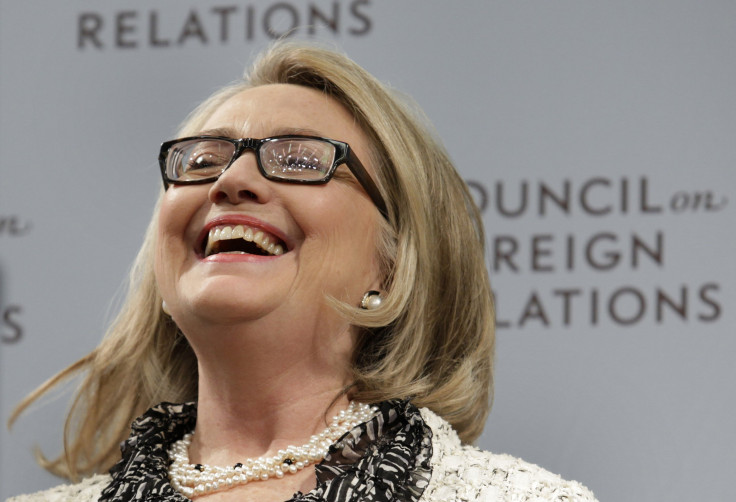Hillary Clinton In 2016: Progressives Take Wait-And-See Strategy With Clinton

In the crowded Democratic presidential primary field of 2008, then-Sen. Hillary Clinton was not the first choice of progressive Democrats. Nor was she the second, or even the third.
But this time around, as the former secretary of state mulls a second presidential run in 2016, progressives are more open to backing her. As Democratic groups, women’s groups and fundraisers pre-emptively join the pro-Clinton camp, and the media obsesses over her front-runner status, progressives are playing a wait-and-see game.
Though Clinton has been a fixture of public life for more than two decades, there is an element of mystery surrounding her positions on a number of issues due to her four-year stint as secretary of state, at the helm of foreign policy. These include her position on domestic policies such as entitlement reform and Wall Street regulation -- top priorities for the progressive left.
Clinton will begin to stake out some positions in a series of policy speeches over the coming months, though she’s likely to stay away from the most controversial issues for some time. But ultimately, she’ll have to answer questions about the issues that will determine whether she has the support of the progressive community.
If she comes out strongly for Wall Street accountability and against cuts to Social Security, for example, “then that pretty much sucks up the oxygen in the room for a potential primary challenge” from the left, said Adam Green, co-founder of the Progressive Change Campaign Committee, which organizes around progressive causes like expanding Social Security benefits. “If her answer to these big picture questions are no, or she doesn’t take a stand, she leaves open a huge political space” that a more progressive candidate could fill.
“I think it’s a little bit different than it was in 2008,” said Jim Dean, chair of Democracy for America, which works to elect progressive candidates. “I think a lot of people respect what she did as secretary of state,” he said, and more than in 2008, he believes she is no longer operating in the shadow of the last Clinton administration. Dean says he has an open mind about Clinton and is even optimistic that she could prove to be a progressive candidate.
Progressive groups will certainly put pressure on Clinton to take a progressive stance on economic issues, a process that will likely play out behind the scenes as well as on the ground with grass-roots organizing tactics. Green expects those efforts to occur in important primary states like Iowa and New Hampshire. “I know we will, but other folks will, push her on issues,” Dean said. “We want her to come out in favor of expanding Social Security. We want to push her on some other issues, as we would with any candidate.”
Though progressives are open to coalescing behind Clinton, they also talk a lot about freshman Sen. Elizabeth Warren, D-Mass., who has staked out a political identity by taking on Wall Street and pushing for stricter regulations and accountability. Liberal journalist David Sirota fired off a number of tweets recently comparing Clinton to Warren. In one, Sirota linked to an interview with Warren talking about cracking down on banks, followed by an article about Clinton getting paid a large fee for meeting with employees of the Carlyle Group, a private equity firm. “Now ask: who do you want as the Dem 2016 presidential candidate?” he wrote. “Do Dems want a [2016] candidate personally pocketing corporate cash (Hillary Clinton) or this person?” he said in another tweet, referring to Warren. “Big decision...”
Green talks a lot about Warren as well, including a July survey from Public Policy Polling showing that she came in third behind Clinton and Vice President Joe Biden among the current field of potential 2016 Democratic candidates, and first when Clinton and Biden are not on the list. But even if the progressive star doesn’t end up on the ballot, Green said, her successful brand of politics will help push other candidates, including Clinton, to the left. Warren “shows politicians the tea leaves, shows them the right path to take,” he said.
© Copyright IBTimes 2025. All rights reserved.






















